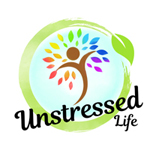Stress and anxiety have become an inevitable part of modern life. With demanding work schedules, personal responsibilities, and the constant pressure to perform, it’s no wonder that many adults find themselves struggling to cope. While there are various pharmaceutical options available to manage stress and anxiety, many people are turning to natural alternatives. In this blog post, we’ll explore 10 natural ways to reduce stress and anxiety, including supplements, exercise, food, and lifestyle changes.
Exercise Regularly

One of the most effective ways to combat stress and anxiety is through regular exercise. When you engage in physical activity, your body releases endorphins, which are natural mood-boosters. Exercise also helps to reduce cortisol, the stress hormone, and improves sleep quality. Aim for at least 30 minutes of moderate-intensity exercise, such as brisk walking, cycling, or swimming, most days of the week.
Practice Mindfulness Meditation
Mindfulness meditation is a powerful tool for reducing stress and anxiety. It involves focusing your attention on the present moment, without judgment, and observing your thoughts and feelings as they arise. Regular practice can help you develop a greater sense of calm and clarity, even in the face of challenging situations. Start with just a few minutes a day and gradually increase the duration as you become more comfortable.
Incorporate Adaptogens into Your Diet
Adaptogens are natural substances that help the body adapt to stress and promote balance. Some popular adaptogens include ashwagandha, rhodiola, and holy basil. These herbs have been used for centuries in traditional medicine to support the adrenal glands and reduce the effects of stress on the body. You can find adaptogenic supplements in health food stores or incorporate them into your diet through teas, tinctures, or powders.
Get Enough Sleep
Sleep is essential for managing stress and anxiety. When you’re well-rested, you’re better equipped to handle the challenges of daily life. Aim for 7-9 hours of quality sleep each night. Create a relaxing bedtime routine, avoid screens for at least an hour before bed, and keep your bedroom cool, dark, and quiet.
Eat a Balanced Diet

What you eat can have a significant impact on your stress levels. A diet high in processed foods, sugar, and caffeine can exacerbate anxiety and stress, while a diet rich in whole foods, such as fruits, vegetables, whole grains, and lean proteins, can help to stabilize mood and energy levels. Include foods high in omega-3 fatty acids, such as fatty fish, chia seeds, and walnuts, which have been shown to reduce inflammation and support brain health.
Practice Deep Breathing
Deep breathing is a simple yet effective technique for reducing stress and anxiety. When you’re stressed, your breathing becomes shallow and rapid, which can worsen feelings of anxiety. By taking slow, deep breaths, you can activate the body’s relaxation response and calm the mind. Try the 4-7-8 breathing technique: inhale for a count of 4, hold for a count of 7, and exhale for a count of 8.
Spend Time in Nature
Spending time in nature has been shown to have a calming effect on the mind and body. Whether it’s a walk in the park, a hike in the woods, or simply sitting in your backyard, being surrounded by greenery and fresh air can help to reduce stress and improve mood. Make an effort to spend at least a few minutes outside each day, even if it’s just a quick walk around the block.
Connect with Others
Social support is crucial for managing stress and anxiety. Talking to friends, family, or a therapist can help you process your feelings and gain perspective. Joining a support group or participating in a hobby or activity with others can also provide a sense of connection and purpose. Don’t be afraid to reach out for help when you need it.
Practice Gratitude
Focusing on the things you’re grateful for can help to shift your perspective and reduce stress. Take a few minutes each day to write down three things you’re thankful for, no matter how small. This simple practice can help to cultivate a positive mindset and increase feelings of contentment and resilience.
Limit Caffeine and Alcohol
While caffeine and alcohol may provide temporary relief from stress and anxiety, they can actually worsen symptoms in the long run. Caffeine is a stimulant that can increase feelings of anxiety and disrupt sleep, while alcohol is a depressant that can worsen mood and interfere with healthy coping mechanisms. If you do choose to consume these substances, do so in moderation and be aware of their potential impact on your stress levels.
Incorporating these natural strategies into your daily life can help you to manage stress and anxiety more effectively. Remember, it’s important to find what works best for you and to be patient with yourself as you develop new habits. If you’re struggling with severe or persistent stress and anxiety, don’t hesitate to seek professional help. With the right tools and support, it’s possible to find greater peace and balance in your life.



